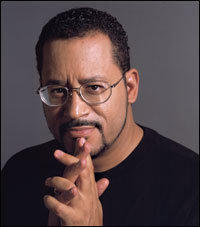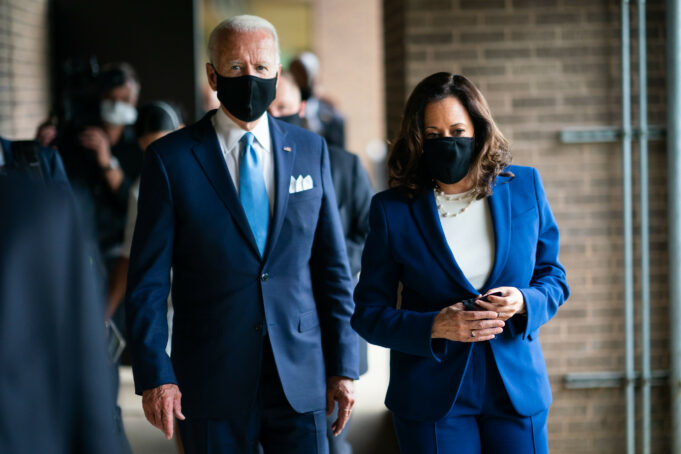Hate it or love it, like it or not—Joseph Robinette Biden Jr., 77, and Kamala Devi Harris, 55, are the presumptive 2020 Democratic Party nominees for president and vice-president of the United States.
Depending on who you ask in Black America, reactions to the Dems’ ticket range from excitement, to disappointment to indifference.
However, what is clear is that regardless of religion, socio-economic status or political ideologies, Black voters are once again presented with an opportunity to place demands on candidates from a political party they have overwhelmingly supported and carried for decades. A flash poll conducted Aug. 12—the day after the former vice-president selected Senator Harris as his running mate—reflected 53 percent approved of his selection.
According to the POLITICO/Morning Consult poll, 84 percent of Democrats “overwhelmingly approve” of Sen. Harris’ selection as well as 79 percent of Black voters who were polled.
An Aug. 13 ABC News/Ipsos poll showed 47 percent of registered voters rated Mr. Biden’s choice of Ms. Harris as “excellent or good,” including 83 percent of Democratic voters and 68 percent of Black voters. A mid-June poll found Mr. Biden led President Donald Trump among Black voters by a whopping 92 percent to five percent.
While it goes without saying that the majority of eligible Black voters will vote for the Biden-Harris ticket, the question remains: what should Blacks expect and what should they demand in terms of substantive and transformative policies from the duo?
“This is a moderate-centrist ticket. It’s not as progressive as many of us would like, but it’s certainly different than what we have right now and from that perspective we need to ask for what we want. We just need to ask for what we want!” said Dr. Julianne Malveaux, an economist, political commentator and president emerita of Bennett College for Women, an HBCU.
Dr. Malveaux told The Final Call voting in this election is important and even if folks are not thrilled with the Democratic selection, she argues it is a better alternative than President Trump and Vice-President Mike Pence. “We need to be clear it’s not just like voting them in there and then just walking away. We need to put their feet to the fire, we need to ask for what we want, we need to make sure we get it,” said Dr. Malveaux.
When asked if there are concerns that progressives within the Democratic Party are not overly-enthusiastic about the Biden-Harris ticket, despite support expressed by progressive Senator Bernie Sanders (I-Vt.), political commentator Angela Rye said any time there is a merging of interests, there will be problems.
“But I think the greatest thing is that iron sharpens iron; and so what we have to do is ensure that Kamala (Harris) and Joe Biden are listening to what people have been saying throughout the primary, throughout these most recent racial tensions that we know exists because there are problems that have not been addressed for years and centuries in this country,” Ms. Rye told CNN host John King.
“What really has to happen is the Biden campaign now has to demonstrate a willingness to not just schedule listening sessions and Zoom calls, but to ensure that those listening sessions and Zoom calls turn into policy shifts,” said Ms. Rye.
“I know firsthand, from seeing Kamala work diligently on the Justice in Policing Act, that she does that. Then it goes from a Zoom call and a phone call to a policy shift, and I think him (Biden) having her on his side will demonstrate just that. And if there’s not a notable change, leading up until November with her being there, I would be completely surprised,” said Ms. Rye.
Though introduced by Democrats with lots of fanfare, the Justice in Policing Act (George Floyd Justice in Policing Act) passed the House but has gone nowhere in the Republican-controlled Senate.
Dr. Malveaux said, Blacks won’t get everything they want but still must be willing to make those demands.
“We’ll get some of it if we push for it,” she said. Dr. Malveaux said support for HBCU’s and policies to address and rectify income inequality and poverty are tops on her list for issues the Biden-Harris ticket should address.
In early May, Mr. Biden rolled out his “Black Agenda” dubbed, “Lift Every Voice: The Biden Plan for Black America,” which introduced six key areas of concentration including:
• Advance the economic mobility of African Americans and close the racial wealth and income gaps.
• Expand access to high-quality education and tackle racial inequity in our education system.
• Make far-reaching investments in ending health disparities by race.
• Strengthen America’s commitment to justice.
• Make the right to vote and the right to equal protection real for African Americans.
• Address environmental justice.
What is not listed in the Biden plan is reparations, an issue journalist and political commentator Doshon Farad said cannot be dismissed or overlooked.
He told The Final Call reparations for slavery and its aftermath should be Black folks’ number one issue.
“Now of course, many of our people are not quite on board with the reparations movement, because the payment of reparations can be a tricky subject—who gets paid reparations, who qualifies, etc. However, when it comes to mass incarceration that’s something that the Black community definitely appears to agree on based on polls that have been given,” said Mr. Farad.
Mr. Biden has been heavily criticized for authoring the 1994 crime bill that led to the incarceration of many Black men and women. As a former prosecutor and attorney general in California, Ms. Harris’ record has also come under fire. Neither Biden nor Harris have voiced support for monetary compensation for Black descendants of slaves but have voiced support for H.R. 40, the Commission to Study and Develop Reparation Proposals for African-Americans Act. Sen. Harris is a co-sponsor of the companion Senate Bill S1083.
“I’ve always said that a community that offers 90 percent of its vote meaning over 90 percent of African Americans vote Democrat I feel that we have a right to question, and challenge and make demands on the party that gets the majority of our community’s votes,” added Mr. Farad.
However, he admitted that he does not expect much from Mr. Biden or Ms. Harris.
“Say if Biden wins. I believe that African Americans are going to do the same thing with Biden-Harris as we did with Obama-Biden. And what do I mean by that? Oftentimes people who would criticize Barak Obama, people who would defend President Barack Obama would say within our community ‘well you know what, we didn’t present President Obama with a Black agenda so we need to stop complaining,’ ” explained Mr. Farad, who is based in the New York area.
The longtime journalist attributes this to the love and pride many Blacks felt in the election of the country’s first Black president so there was an unwillingness to place demands on him.
Mr. Farad also criticized what he called Black “gatekeepers” in media and organizations who protected Mr. Obama and said Blacks who criticized or critiqued his policies were themselves subsequently attacked, he continued.
Mr. Farad portends a similar response if Biden-Harris win, particularly if the only Black leaders who are afforded access to the White House are those deemed “safe” and not those who will truly “challenge” the system, he argured.
“I believe that African Americans in our desire after all we’ve been through to seek a hero, to seek a savior, I believe we’re going to treat the Biden-Harris ticket just as we treated Obama. We’re going to protect that administration the way that many of us protected Obama and so we can expect from them right now—nothing. And when I say nothing, in terms of any type of demands because of the fact that we as a community as Dr. John Henrik Clark said, ‘most Black people are trying to seek a place within White supremacy.’ ”
Dr. Malveaux said Black folks must also be clear that unlike President Obama, Senator Harris is the number two on the ticket, so her role is clearly defined.
“She’s not the tail wagging the dog and so we have to be clear about what her role is. But we also have to be extremely aggressive and transparent about what we want, and I think that she will listen, I truly do think she will listen. She’s not going to be doing everything she wants to do because she is the number two. She’s not basically setting the agenda, Joe Biden is. I think as long as we keep their feet to the fire, we will have the opportunity to raise our voices.”
Black people have the opportunity during this time to be aggressive in our demands, noted Dr. Malveaux. She thinks because Blacks, particularly Black women, saved him in South Carolina that Mr. Biden may be more inclined to listen. “The bottom line is we can’t expect Biden, Harris or anyone else to fight for our issues unless we lift them up ourselves.”
But will Black America be diligent and uncompromising in our fight for our interests like Latinos, the LBGTQ community, Jewish pro-Zionist supporters of Israel and other constituencies?
“Most of us will be so happy that we have ‘Massa Biden’ in the White House and of course a sister in the White House we will focus on that, as opposed to total liberation,” said Mr. Farad.

Black people cannot afford to view political involvement and engagement as the solution to their problems because politics without economics is symbolism without substance, teaches the Honorable Minister Louis Farrakhan of the Nation of Islam.
However, the Muslim minister notes, politics does have a purpose if leveraged correctly. “Our tax dollars are interwoven with the tax dollars of every other citizen of America; and therefore, we cannot abdicate a political responsibility to put pressure on government to yield, to create opportunity, to create an atmosphere; to try to create a level playing field so that we have as much of a chance to advance in the society as others,” explained Min. Farrakhan during a previous interview with author, activist and political commentator Dr. Michael Eric Dyson.
However, Min. Farrakhan cautioned, activism on a political front must be matched by activism on the economic front. “Otherwise, we’ll have political power that looks powerful, but in the end, if you can’t back it up with economic power, then our voice is very, very weak in the political sphere in America,” said Min. Farrakhan.













